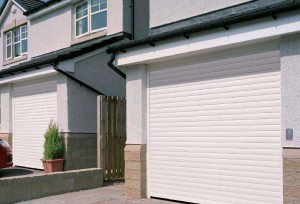Aluminum shutters have become a popular choice for homeowners looking to enhance the aesthetics and functionality of their properties. These versatile curtains offer a range of benefits, including durability, safety and energy efficiency. However, a common concern among potential buyers is whether aluminum blinds tend to heat up, especially in warmer climates. In this article, we’ll explore the factors that affect aluminum blind insulation and gain insight into how effectively they manage heat.
Aluminum is a highly thermally conductive material, which means it has the ability to transfer heat. This characteristic has led to the misconception that aluminum blinds will overheat when exposed to sunlight. While aluminum does have high thermal conductivity, the design and construction of modern aluminum blinds have been optimized to minimize heat gain and transfer.
The thermal insulation of aluminum blinds is affected by a number of factors, including the thickness of the aluminum slats, surface finish and the presence of insulation. Thicker slats are more effective at resisting heat transfer because they provide a greater barrier to outside temperatures. Additionally, certain surface treatments, such as powder coating, can help reflect sunlight and reduce heat gain. Some aluminum blinds also incorporate insulation within the slats or frames to further enhance their thermal properties.
When it comes to thermal management, aluminum blinds are designed to promote airflow and ventilation when open, allowing hot air to escape and cold air to circulate. This feature is especially beneficial for maintaining a comfortable indoor environment during hot weather. Additionally, the adjustable nature of aluminum blinds allows users to control the amount of sunlight entering a room, thereby regulating temperature and reducing the effects of solar heat gain.
It’s worth noting that installing aluminum blinds will also help improve their ability to manage heat effectively. Properly installed blinds create a tight seal around the window, helping to prevent air leakage and minimizing heat transfer between the interior and exterior of the building. This not only improves energy efficiency but also reduces the potential for heat buildup within the living space.
In addition to their thermal properties, aluminum blinds offer a range of other benefits, making them a practical choice for residential and commercial applications. Its sturdy construction provides a high level of security, deterring intruders and preventing forced entry. In addition, aluminum shutters are corrosion-resistant and suitable for use in coastal areas or areas with high humidity.
The durability of aluminum blinds also ensures that they can withstand the elements, including exposure to sunlight and extreme temperatures, without deforming or deteriorating. This longevity makes them a cost-effective investment, as they require minimal maintenance and are unlikely to need replacing for many years.
When considering the potential for aluminum blinds to heat up, it is important to realize that their thermal performance can be affected by external factors, such as the orientation of the window, the angle of the sunlight and the surrounding environment. In some cases, the use of external shading devices such as awnings or trees can complement the effectiveness of aluminum blinds in controlling heat gain.
In conclusion, although aluminum is a conductive material, modern aluminum blinds are designed to minimize heat trapping and effectively manage temperature control within a building. By considering factors such as slat thickness, surface finish, insulation and installation, homeowners can ensure their aluminum blinds provide optimal thermal performance. Offering security, durability and energy efficiency, aluminum blinds remain a versatile and practical option for enhancing the comfort and functionality of any property.
Post time: May-15-2024

